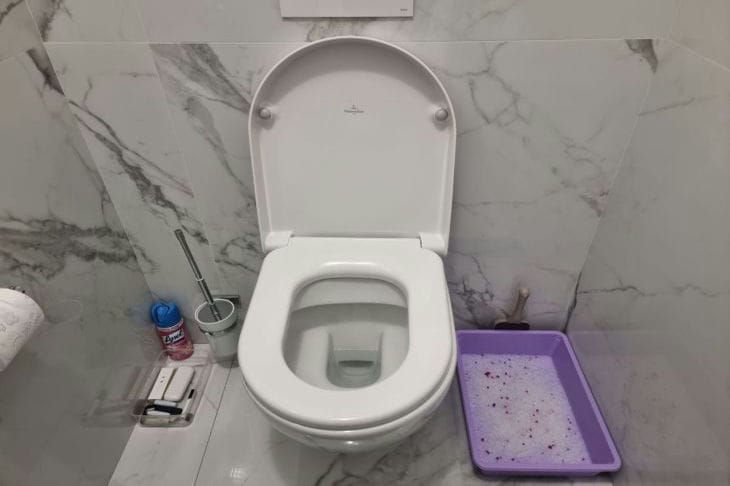How to Fight Litter Box Odor: Secret Tricks That Will Surprise Even Experienced Cat Owners
Cats are adorable pets that can bring comfort and warmth to your home.
However, along with the furry happiness, a less pleasant aspect often penetrates into the home - the smell from the cat litter box.
This problem is familiar to many cat owners and can be a real challenge for the sense of smell.
Fortunately, there are many effective ways to combat unpleasant odors, allowing you to keep your home fresh and comfortable for everyone in it.
Choosing the right filler
The basis of the fight against odor begins with the choice of high-quality filler. The modern market offers a wide range: from classic clay to innovative silica gel.

Wood fillers have a natural fresh aroma, and activated carbon effectively absorbs odors.
It is important to experiment to find the best option for your particular pet.
Regular cleaning of the tray
The frequency of cleaning the cat litter box plays a key role in odor control.
Daily removal of waste and replacement of contaminated filler is the basis of hygiene.
It is recommended to completely replace the filler at least once a week, and thoroughly wash the tray itself using safe disinfectants.
Use of deodorants and neutralizers
Special odor neutralizers can be an effective addition to basic care. They come in the form of sprays, powders, or granules added to the litter.
It's important to choose cat-safe products, avoiding strong artificial flavors that may discourage your pet from using the litter box.
Ventilation of the premises
Good air circulation is key to combating unpleasant odors.
Regularly airing the room where the tray is located will help get rid of stagnant air.
Placing a small fan or air purifier near the litter box can make a big difference.
Correct placement of the tray
The location for the cat's toilet should be carefully thought out. The ideal option is a dry, well-ventilated room, away from the places of eating and resting.
Closed trays with carbon filters can be a great solution for small apartments, containing the spread of odor.
Natural Air Fresheners
Natural fragrances can not only mask unpleasant odors, but also create a pleasant atmosphere in the home.
Essential oils of lavender, tea tree or eucalyptus have a refreshing effect and antibacterial properties.
However, it is important to remember that some scents may be unpleasant for a cat's sensitive nose.
Pet's diet
Your cat's diet directly affects the smell of its waste. High-quality foods with the right balance of nutrients promote better digestibility and, as a result, less intense odor.
Consultation with a veterinarian will help you choose the optimal diet that takes into account the individual characteristics of your pet.
Using activated carbon
Activated carbon is a natural absorbent that can effectively absorb unpleasant odors.
Placing an open container of activated carbon next to the litter box can significantly improve indoor air quality.
The same function can be performed by special carbon filters built into closed trays.
